May-June 2017 Sustainable Development
Read the articles selected in May 2017
A child is a child
Source: https://www.unicef.org/
92% of migrant children move on their own. Outside of safe and legal channels, and not confident in the authorities, they meet every form of danger and exploitation. The Convention on the Rights of the Child is universal but requires urgently agreements to make effective the right of a kid to be only a kid.
Read more:
https://www.unicef.org/publications/files/UNICEF_A_child_is_a_child_May_2017_EN.pdf
Obesity Update 2017
Source: http://www.asvis.it/, 18 May
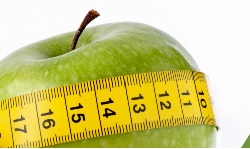
One in five adults and nearly one in six children are overweight or obese in OECD countries. Social disparities and a low level of education tend to affect obesity rates, expected to increase further. Fiscal and pricing policies, public mass- and social media campaigns, food labeling can address consumers choices.
Read more:
http://www.asvis.it/public/asvis/files/Obesity-Update-May-2017-final.pdf
Sustainable Development in the European Union
Source: http://ec.europa.eu, 2016
The last Eurostat’s publication on the current progress of the EU and its Member States towards the UN Sustainable Development Goals shows an improvement in environmental policies, in the level of education, in employment rates, but 23% of the population was still at risk of poverty in 2015.
Read more:
International Day for Biological Diversity 22 May
Source: http://www.un.org

The conservation of biodiversity is included in 2030 Agenda Goal n. 15. The Convention on Biological Diversity has acknowledged its importance for humankind and for the evolution of life. States are responsible for preventing human activities from harming their biological resources.
Read more:
http://www.un.org/en/events/biodiversityday/index.shtml
International Day against Homophobia and Transphobia focuses on health, well-being of LGBT people
Source: http://www.un.org, 17 May
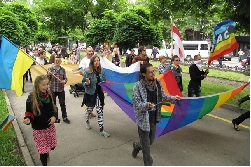
This international day is celebrated in the context of the 2030 Agenda and is focused to recognize worldwide that sexual diversity is not an expression of a physical or mental disorder that requires a cure. This belief is linked to violence and discrimination LGTB people have to face every day affecting their health and wellbeing.
Read more:
http://www.un.org/apps/news/story.asp?NewsID=53956#.WSVddGiLQdU
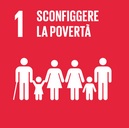
An essential role, a new approach
Source: http://www.worldbank.org, 22 Apri
The World Bank Group declares as its essential role to build a sustainable growth, achieving everyone in the fight against famine and inequality. Its support for developing countries and the worlds poor intends to address the causes of fragility and set long-term development objectives.
Read more:
http://www.worldbank.org/en/news/feature/2017/04/22/an-essential-role-a-new-approach
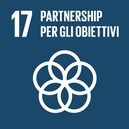
Join forces to create a better world for all
Source: http://www.unglobalcompact.org
UN Global Compact is a platform that advances partnerships for companies inspired by the SDGs and whose policies and practices are aligned with universal principles on human rights, labor, environment, and anti-corruption. Partnerships help the business and make the world better.
Read more:
https://www.unglobalcompact.org/what-is-gc/mission
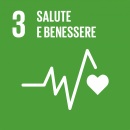
Caring for quality in health
Source: https://www.oecd.org
This report understands the concept of care for quality in modern healthcare systems as a combination of effectiveness, safety, and patient-centeredness. In the variety of approaches depending upon political traditions and priorities, it is essential to identify unresolved gaps and challenges to drive sustainable change.
Read more:
https://www.oecd.org/els/health-systems/Caring-for-Quality-in-Health-Final-report.pdf
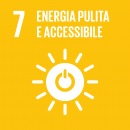
Better energy, greater prosperity
Source: http://www.se4all.org, April
The development of poor countries depends on access to affordable and reliable energy services, but the expansion of an unchanged energy system, based on fossil fuels, is unsustainable. The global transition to renewables is technically and economically possible and would deliver important benefits and economic opportunities.
Read more:
http://www.se4all.org/sites/default/files/BetterEnergy_fullReport_DIGITAL.PDF
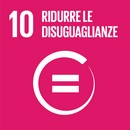
Reducing income inequality while boosting economic growth: can it be done?
Source: http://www.oecd.org/
The rising income inequality in the OECD countries can't be treated without taking into account the growth-enhancing policy reforms and the redistributive role of tax and transfer systems. In the context of technological change and globalization, education and labor market policies are paramount.
Read more:
http://www.oecd.org/eco/labour/49421421.pdf
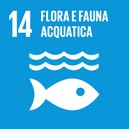
Freshwaters
Source: https://www.worldwildlife.org
Freshwater ecosystems, that host more than 100.000 species, are endangered by human activities, pollution, and climate change. Clean fresh water is rare and accounts for less than 0,01% of the planet’s surface. Wetlands serve as natural facilities for water treatment and cleaning of chemicals but are disappearing.
Read more:
https://www.worldwildlife.org/habitats/freshwaters
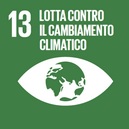
Climate Change Action Plan
Source: http://www.worldbank.org
The global warming threats the food and water security, putting at risk of poverty an additional 100 million people by 2030. But it is also a development opportunity, that the World Bank intends to exploit with the Climate Change Action Plan, supporting the sectors and activities with climate co-benefits.
Read more:
https://openknowledge.worldbank.org/bitstream/handle/10986/24451/K8860.pdf?sequence=2&isAllowed=y
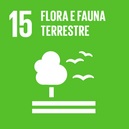
The future of beef is deforestation-free
Source: https://www.worldwildlife.org/, 21 February
80 percent of the deforested area in the Amazon is dedicated to beef production. Deforestation presents not only an enormous environmental impact but also an economic risk for companies. Global food companies with their green commitments can facilitate a sector-wide move to conserve forests.
Read more:
https://www.worldwildlife.org/blogs/on-balance/posts/the-future-of-beef-is-deforestation-free
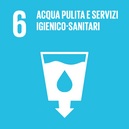
Wastewater. The untapped resource
Source: http://unesdoc.unesco.org
Wastewater produced by human activities has a detrimental impact on ecosystems and human health. If treated, wastewater can be a cost-efficient and sustainable source of energy, nutrients, organic matter, improving sanitation services and reducing infections. So how we use it is critical for achieving the entire Agenda.
Read more:
http://unesdoc.unesco.org/images/0024/002471/247153e.pdf
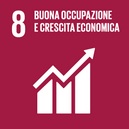
Decent work and economic growth: why it matters
Source: http://www.un.org
Only a fairly paid job, stable, able to give an economic security to families, and safe for workers, can be said decent. A decent work is what drives people out of poverty, ensures the social peace and is the fundament of democracies.
Read more:
Alaska tundra source of early-winter carbon emissions
Source: green.harvard.edu, 8 May
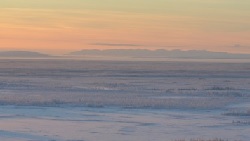
A study published in the Proceedings of the National Academy of Sciences shows increases in atmospheric carbon dioxide released in fall and early winter from Alaskan tundra, where the warmer temperatures decompose the organic matter of thawing soils during the Arctic summer.
Read more:
https://www.seas.harvard.edu/news/2017/05/alaska-tundra-source-of-early-winter-carbon-emissions
New crop pest takes Africa at lightning speed
by Erik Stokstad
Source: Science, 5 May
A Spodoptera frugiperda pest, native of the Americas, has invaded 21 African countries devastating maize fields. Researchers try to fight the epidemic, resistant to several pesticides, with natural products and weapons, and to avoid a heavy use of pesticide, which can trigger a disastrous chain reaction.
Read more:
http://science.sciencemag.org/content/356/6337/473.full
Artificial chicken grown from cells gets a taste test- but who will regulate it?
by Elizabeth Devitt
Source: Science, 15 March

The synthetic food derived by some U.S. startups from cultured cells opens the question about the regulation of agricultural biotechnology, under the FDA competence, while now also genetically modified products pose health risks.
Read more:
Natural marine world heritage in the Arctic Ocean
Source: http://www.asvis.it, 25 April
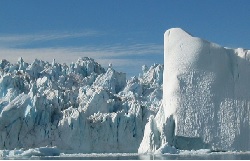
The Arctic Ocean has a profound impact on the climate and wellbeing of ecosystems all around the globe. As Arctic sea ice retreats, the irruption of new exploitation activities urges an enhanced protection for this areas through the World Heritage Convention.
Read more:
https://portals.iucn.org/library/sites/library/files/documents/2017-006.pdf
Global diets link environmental sustainability and human health
by David Tilman & Michael Clark
Source: Nature, 12 November 2014
The global transition towards processed food affects human and environmental health, whereas almost a billion people still suffer from inadequate and insecure nutrition. Alternative diets are a global challenge and opportunity for public health and environment.
Read more:
http://www.nature.com/nature/journal/v515/n7528/full/nature13959.html
Report of the Special Rapporteur on the issue of human rights obligations relating to the enjoyment of a safe, clean, healthy and sustainable environment
Source: http://www.asvis.it, 24 April
This Report developed with the UN Environment Programme represents a rights-based approach to environmental issues which offers guiding principles on the obligations relating to the environment and sourced in human rights.
Read more:
http://www.refworld.org/docid/58ad9dd44.html
Il futuro demografico del Paese
Source: http://www.asvis.it/

The demographic drop in Italy, whose population turns out to be the eldest in Europe, will affect seriously the economic development and the social security. It will be indispensable to welcome a number of immigrants estimated after an Istat report between 250.000 and 300.000.
Read more:
http://www.istat.it/it/archivio/199142
SEforALL Forum seeks to accelerate energy access, productivity
Source: http://www.asvis.it/, 17 April
The 3rd Sustainable Energy for All Forum, held in New York from 3-5 April monitored the progress to SDG 7 (affordable and clean energy for all) to launch new partnerships and ideas, spur investment and double the share of renewable energy, ensuring the universal access to modern energy services.
Read more:
http://sdg.iisd.org/news/seforall-forum-seeks-to-accelerate-energy-access-productivity/
The Ocean Economy in 2030
Source: http://www.oecd.org, 27 April
The ocean economy is a key source for the future of humankind and is undergoing a profound transition, in response to climate change and pioneering technologies. Realising the full potential of the ocean economy which is impressive for innovation and economic growth requires a responsible, sustainable approach.
Read more:
Bioengineering: solar upgrade
by Katherine Bourzac
Source: Nature, 27 April
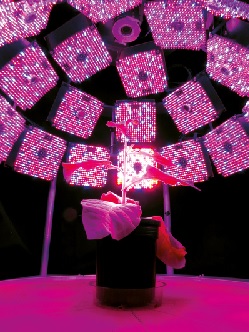
To feed the world the global agricultural production will have to rise about 50%, so governments are investing in research to optimize photosynthesis to boost crop production. The genetic modification of photosynthesis will provide for the inefficiencies of light absorption and photoprotection, reinventing plants.
Read more:
https://www.nature.com/nature/journal/v544/n7651_supp/full/544S11a.html

